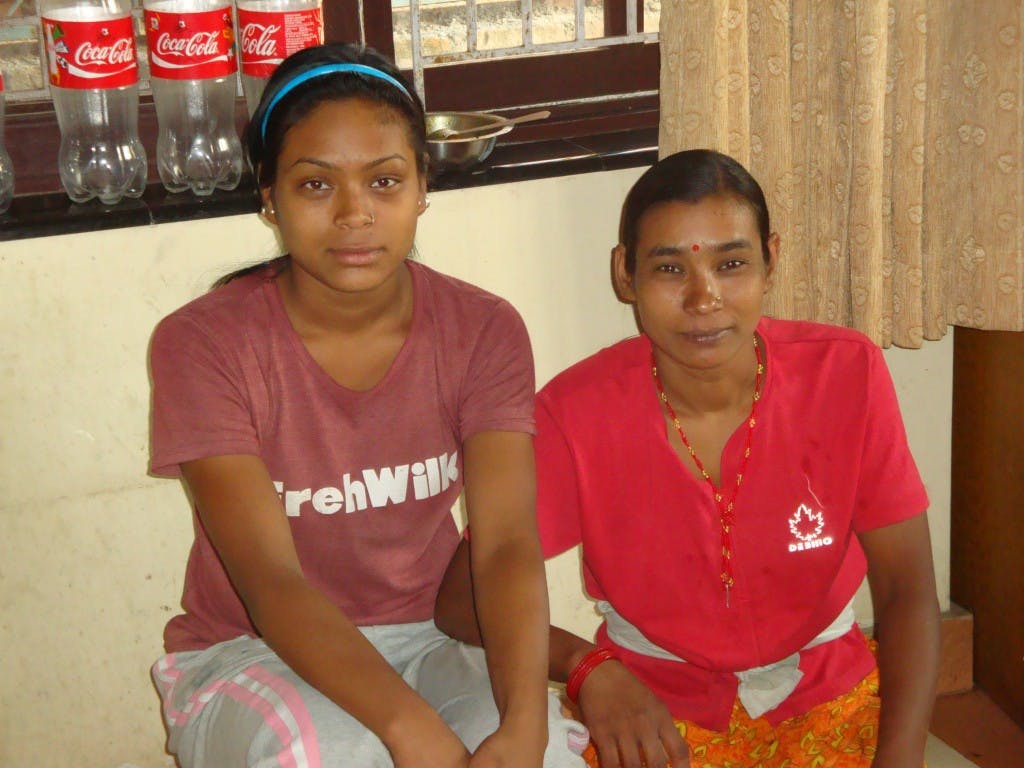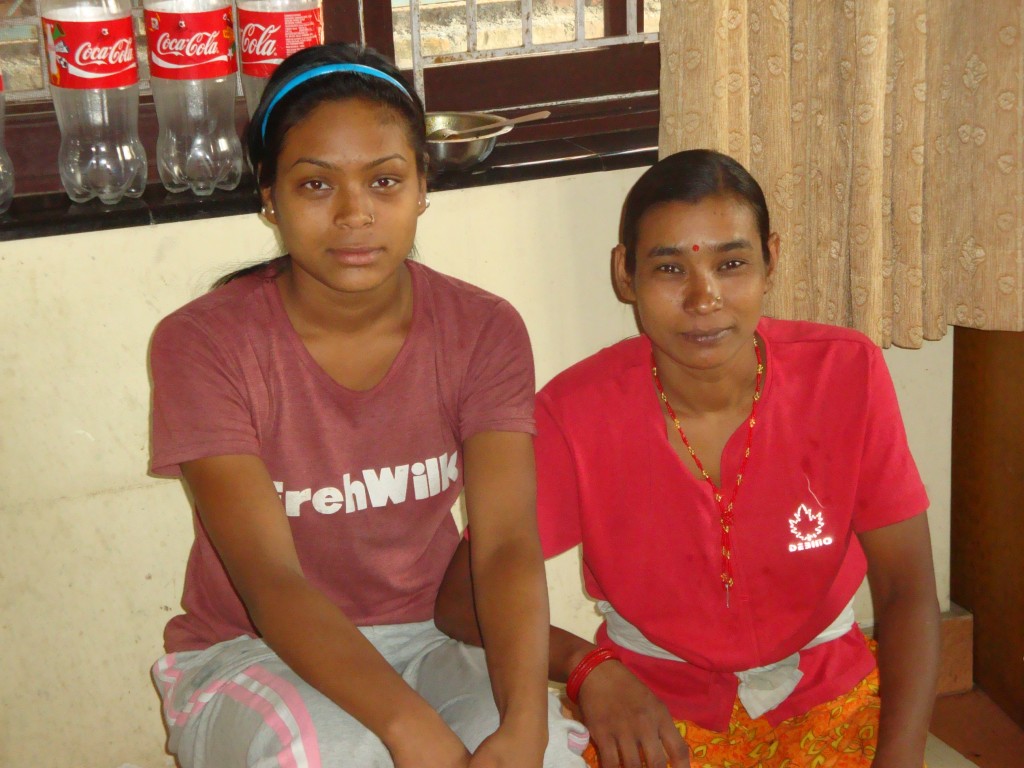Isn't she entitled to get education?
Jan 21, 2015
Story


Kumari, 18, was studying in grade six when she decided to leave her school to support her mother Maili, 34, who works as a housemaid in three to four houses on a daily basis to meet their ends. Kumari is the eldest among the four daughters of Maili so she had to leave her school despite securing first position in her school. Her father is a drunkard and does not contribute anything to their household and snatches their hard earned money to buy his drink.
Kumari now works as a housemaid where she cooks, cleans and washes clothes. Precisely, she does every household chore and earns a meager salary which is less than $25 per month. She recalls that leaving school was a difficult decision but she had to support the household and education of her three sisters. Kumari's employer promised to provide her tailoring or beautician training so that she would be able to live independently but even after a year has been passed they have not taken any initiative to fulfil their promise. Moreover, some of the family members taunt her, scold her if she enquires about the training program and expect her to do as per their demand; she cannot retaliate because if this works go out of her hand then her sisters might also have to stop their education.
Maili, 34, is eager to educate her daughter and remembers the mistreatment done by her father to all her sisters. Her eyes filled with tears when she said that her father did not let her sisters to go to school as he regarded them as a burden in the household. He would not let them eat until they completed the household chores but at the same time her brothers were sent to school. She related herself with the local Nepali proverb that says "daughter can never have a good fate." Her father married her off at the age of 15 and that to a drunkard who hits her every evening if his demands are not met. She is confident that her life would have been better if she was allowed to go to school and life of her daughters too would have been better.
This family of six members live in one room where they sleep, cook, eat and read too. The constant fight and violence against Maili by her husband is not only hampering the health of Maili but also affecting the child psychology of their daughters, Kumari, 18, Radhika,12; Punam, 10; and Neelam, 9. Maili has been advised time and again to leave her husband and start her life in a new way. But she is skeptical that the society will look down upon the woman has left her husband and she is doubtful that with four daughters and no man they might be even more vulnerable. So despite being abused every now and then the figure of her husband is important to her so as to life a dignified life in the society. Maili's daughters too have started to believe that it is the right of the husband to beat them and they don't even dream of violence free life.
With Kumari leaving her school now Radhika too is willing to follow the footsteps of her sister. But Maili insists to educate them because she firmly believes that education can increase their standard of living. She sighed and said "I don't want my daughters to live the same life like I did". She added that her husband might marry off Kumari to someone who can be his drinking partner. So, she is trying to protect her daughter by putting her into the school. She even visited some schools but the school teacher mistreated them for being housemaids who would never be able to afford their school fees. These kinds of behaviour has even traumatized them and Kumari has lost hope to pursue her education as at one hand she does not have money to pay for the school fees and if she seeks for scholarship opportunities the teacher themselves are discriminating her on the basis of her economic class.
Kumari is not only being deprived of her rights to education but is equally vulnerable to sexual and domestic violence. There are different insecurities that surround her, with no education and no employment opportunities she might get into prostitution, her father might marry her off to a drunkard or even sell her off to get money to buy his drink. So there are high chances that she might end up being a prostitute in Indian brothels and finally she becomes the victim of sexual violence, can be infected with HIV along with being the victim of poverty.
When the whole world is striving to get 100% literacy rate by 2015, a girl in the capital city of Nepal though literate is surrounded by different insecurities. She is denied of her education as she is not able to pay $210 (approx) annually to pursue her education and get insulted by the so called intellectuals of the society to have worked as a maid. When majority of her age are going to school; and among them most of the girls worldwide might have more than $210 as their pocket money a year or might spend that amount on candies, parties, toys etc when a girl in the absence of same is not entitled to get education. The developmental organizations here tend to supports who are only victims not those who are at the verge of being victims as these vulnerable people do not come into contact with these organizations. So, I leave it to you to decide on the answers of these questions: Can developmental process be proactive rather than being reactive? Can girls from very low income group expect to have a violence free life? Will gender based discrimination ever end? Till when will women endure abuse? Till when will women be associated with their male members to get dignified life or are not women entitled to live dignified life without being associated with their male kin?
Photograph of Maili and Kumari by Anjana Luitel




